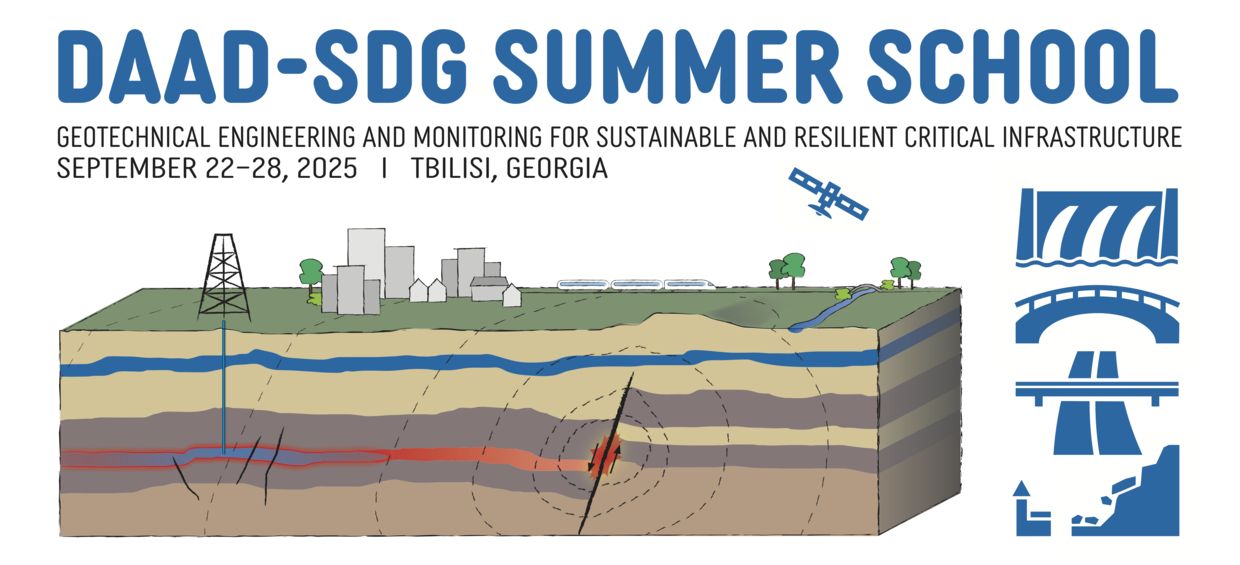DAAD-SDG Summer School 2025

Overview
In the face of accelerating climate change and increasing natural hazards, the importance of resilient infrastructure is more vital than ever—a need clearly reflected in the United Nations Sustainable Development Goal No. 9.
The Summer School on Geotechnical Engineering and Monitoring for Sustainable and Resilient Critical Infrastructure focuses on key aspects of designing, maintaining, and monitoring critical infrastructure such as hydropower facilities, dams, bridges, tunnels, and roads. A particular emphasis is placed on the responsibility of the next generation to shape future infrastructure systems—both through innovation and by maintaining what already exists.
Over the course of this one-week block program, participants will gain a foundational understanding of the complex geological, engineering, economic, and societal factors involved in infrastructure resilience, and explore essential strategies and technologies to strengthen critical systems and ensure the resilience of this type of critical infrastructure.
Target Group
The Summer School primarily addresses PhD candidates in the field of environmental and geoengineering research. However, advanced Master students and participants from related disciplines are also welcome to apply.
Outline and Course Topics
Days 1–4: Workshop at Tbilisi State University (TSU) & Local Site Visits in Tbilisi
Participants will explore the following topics through expert-led sessions:
• Rockfall and Landslide Geotechnics
• Potential Hazards for Critical Infrastructure in Georgia
• Infrastructure in Geologically Complex Locations
• Low-Cost Sensors and Innovative Geodetic Methods
• AI-Enhanced Monitoring of Critical Infrastructure
• Vulnerability and Cascading Effects in Infrastructure Systems
• Poster session by participants: Science Serving Society—Contribution of researchers to solve SDG-challenges
Days 5–7: Field Trip
To complement lectures, participants will engage in a three-day field excursion to apply and deepen their knowledge. Planned site visits include tailing dams operated by the RMG Group in the Bolnisi district, recent landslides and the Enguri Arch Dam in northwest Georgia.
Further Information
Date: September 22-28, 2025
Location: Tbilisi State University, Georgia
Participation & Costs: Thanks to support from the DAAD-funded SDG-Caucasus Project, participation in the Summer School is free of charge for all selected participants.
- For participants from Georgia: Includes all course materials, site visits and coffee breaks (days 1–4) and full accommodation, meals and travel during the field trip (days 5–7).
- For participants from Karlsruhe: Includes travel to Georgia, full accommodation, meals, and travel costs for the entire duration of the Summer School.
Program: coming soon
Application: Please submit your application using the application form by June 8, 2025.
Participants will be selected based on the information provided in their application, with consideration given to academic background and motivation.

